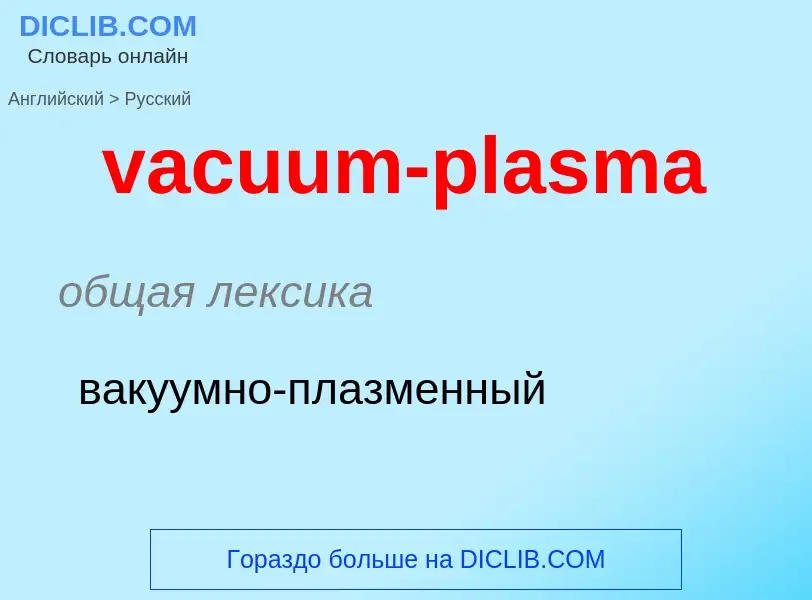Μετάφραση και ανάλυση λέξεων από την τεχνητή νοημοσύνη ChatGPT
Σε αυτήν τη σελίδα μπορείτε να λάβετε μια λεπτομερή ανάλυση μιας λέξης ή μιας φράσης, η οποία δημιουργήθηκε χρησιμοποιώντας το ChatGPT, την καλύτερη τεχνολογία τεχνητής νοημοσύνης μέχρι σήμερα:
- πώς χρησιμοποιείται η λέξη
- συχνότητα χρήσης
- χρησιμοποιείται πιο συχνά στον προφορικό ή γραπτό λόγο
- επιλογές μετάφρασης λέξεων
- παραδείγματα χρήσης (πολλές φράσεις με μετάφραση)
- ετυμολογία
vacuum-plasma - translation to ρωσικά
общая лексика
вакуумно-плазменный
общая лексика
магнитоплазма
магнитоплазменный
общая лексика
квазинейтральность
Ορισμός
Βικιπαίδεια
In quantum field theory, a false vacuum is a hypothetical vacuum that is relatively stable, but not in the most stable state possible. This condition is known as metastable. It may last for a very long time in that state, but could eventually decay to the more stable state, an event known as false vacuum decay. The most common suggestion of how such a decay might happen in our universe is called bubble nucleation – if a small region of the universe by chance reached a more stable vacuum, this "bubble" (also called "bounce") would spread.
A false vacuum exists at a local minimum of energy and is therefore not completely stable, in contrast to a true vacuum, which exists at a global minimum and is stable.



![Jacob's Ladder]] Jacob's Ladder]]](https://commons.wikimedia.org/wiki/Special:FilePath/Plasma jacobs ladder.jpg?width=200)

![[[Hall-effect thruster]] [[Hall-effect thruster]]](https://commons.wikimedia.org/wiki/Special:FilePath/HallThruster 2.jpg?width=200)

![Plasma in a [[tokamak]] Plasma in a [[tokamak]]](https://commons.wikimedia.org/wiki/Special:FilePath/MAST plasma image.jpg?width=200)

